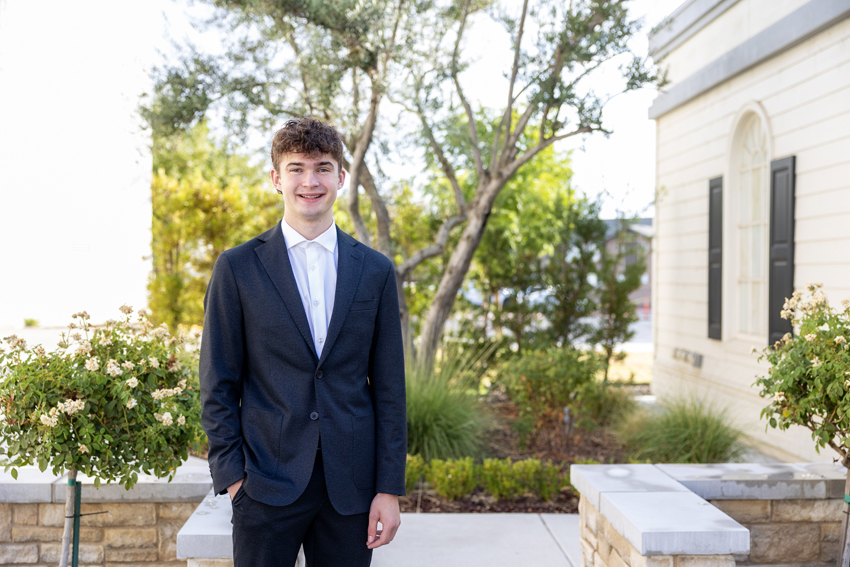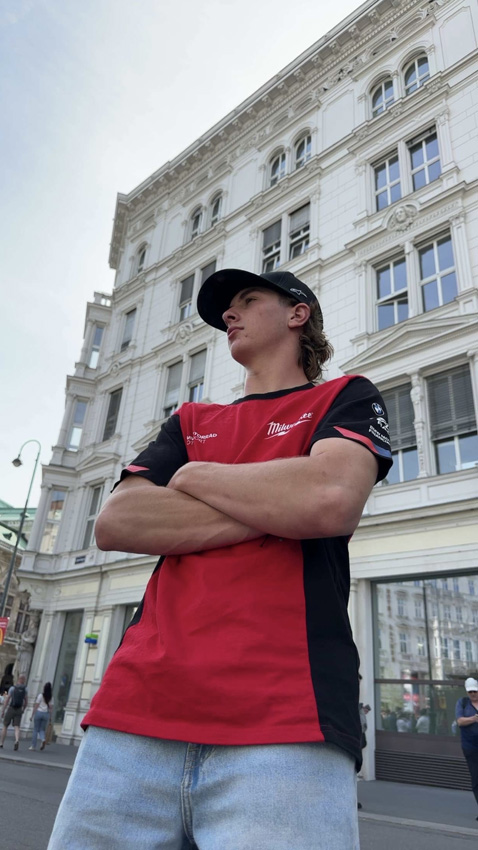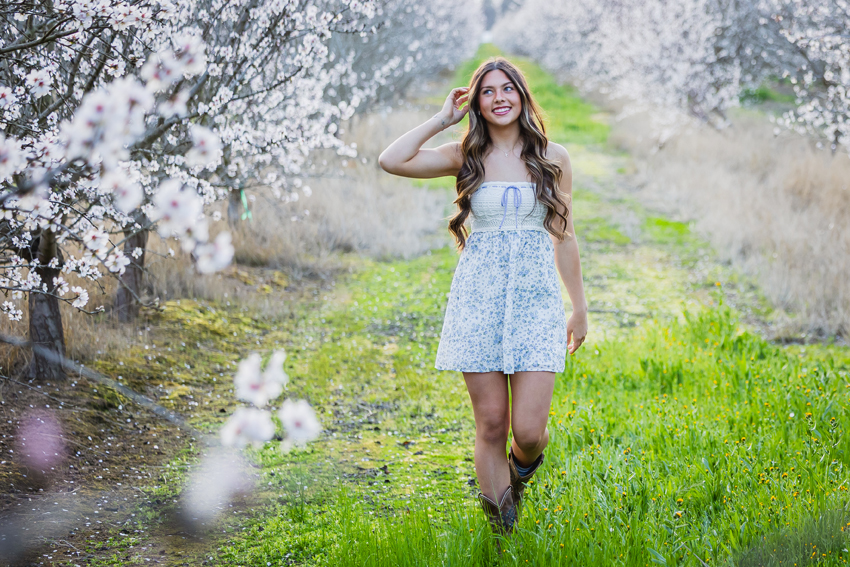After four years of pioneering multimedia journalism through podcasting for The Feather Online, our adventure concludes. When we began, podcasting was a blank canvas that had no numbers to fill in… we just started painting and, as it turned out, we painted something beautiful and memorable.
Stobbe: When David and I first started podcasting in March 2009, we hardly had guidelines. Our “forefathers,” if you will, were Claire Kister and Mitchel Callisch. One day after school, Mitch taught David the bones of GarageBand, and Claire showed me her most recent podcast on First Dates. After our tutorial on “what is a podcast,” David and I took flight.
Casuga: It’s amazing to think back on how we started in this little room with one microphone and just did it. We were so bad… we didn’t even know what we were doing. With every episode, we learned from the last one. Not just how to write, but how to approach the podcast as a whole, and how to read the script. Even how to work well with each other.
Stobbe: Not to say we weren’t friends, but we both consider our first podcast the beginning of our friendship. “The secret lives of educators” took hours to create. We listened, re-listened, and slaved over the one episode. We still, to this day, have the first minutes memorized and quote it together even now-and-then. We thought we perfected the podcast first-try. But after finally listening to it completed, we realized how many issues we needed to work out in order for the project to be successful… and fast.
Casuga: At the start, I really didn’t like Brooke’s voice. Plus, we’d talk about generic things so I thought this whole thing was pointless and obvious. But as we’ve gotten better and grown, I’ve seen how good Brooke is at really looking at herself, and being able to see how there’s a certain depth where all our differences line up.
PODCAST: Semester’s end commences new adventure: May 16 , 2012–
Stobbe: Our journey through podcasting has taken many turns, but we both agree that we’ve only taken steps forward. We were quick to learn from our mistakes and not have any “repeat performances” of bad ideas. As I’ve developed my ‘voice,’ my goal has been to prove our similarities as different people. Anyone can discuss generic topics or throw in a batch of cliches, but I’ve discovered that no one genuinely relates to generalities; those are just words.
Casuga: A lot of the things I was writing were generic. I would say stuff like “doesn’t everyone feel this way?” or something that related to us as a whole. As I’ve gotten better , I’ve learned to become transparent and let people see me, and how they can relate to me personally, not just “we are all similar.”
Stobbe: We’ve learned that people are wired to be intrigued by a funny or embarrassing story about someone else. Then as I slowly delve into the deeper issue, they’ll start thinking once they hear other peoples’ thoughts develop, they’ll see themselves in the story. They’re interested when they realize how it, somehow, connects to some superficial, daily, happen-to-anyone occurrence. That’s how we, as people, stay connected long enough to think, “Hm, that’s interesting…” when we hear a new idea that’s developed and support it with familiar events: That’s the point of relationships. Not a generic saying. It’s those circular endings that people love. Those are the hooks. When people hear how daily life actually connects who we are as self and community, to who we are as dynamic and “interconnected” people.
Casuga: She, personally, has a very comprehensive grasp on us as individuals, and how we all struggle the way others do. The specific problem might be different, but it’s the same inward struggle as the person next to us. I think that’s what people really want to hear, and that has allowed people to come together. If someone as different as Brooke is struggling with the same kind of things or problems as the listener… what’s to say your friends aren’t hurting the same?
Stobbe: The fact remains that David and I are very different people. Podcasting has created a common ground for us to relate. Otherwise nonexistent, David and I have a deeper understand of each other. I think through spending so much time together, we’ve developed not only ample work ethics, but also insight into other peoples’ wiring. It all comes together in the end, but everyone takes different approaches and will come to their own conclusions about our topics in the end.
Casuga: Brooke and I are very different in many ways: when she thinks of a topic or struggle that she’s going through, and I find another story of my own that relates and fits perfectly… our stories tend to be completely different. I hope that when when people are listening, they can say, “yeah, thank you. I’m really not the only person feeling that way.”
Stobbe: David’s openers were most always a surprise. I’d record my piece, send it off to Dave, then wouldn’t hear it until publishing. I must say, David has really created something spectacular. Podcasting isn’t his thing. He enjoys coding websites, and a bunch of other things I don’t understand. But he has really figured out how to express himself, and make his portion a vital part of the cast. He does a fantastic job at being able to prepare the listener for what’s to come, while still making it personal; he views the material through his experience and life lessons. It’s amazing, but he rocks those 30-seconds to a ‘T.’ Without him, I could never reach the kinds of audiences I do.
Casuga: And I also think it’s consequential that we’re of different gender. A lot of high school has guys vs. girls problems. The way we deal with relationships are completely different. But the way we talk about them in podcasts, we’re able to find a similarity, despite a gender discrepancy– that’s a really important thing that we do. Because we’re of different gender, with completely different views, no one is able to say “that doesn’t apply to me” and we’re able to cover the bases so we don’t leave room for someone to feel alone. We’re so different in personality and gender, so if we’re at different ends, but able to discuss the same thing; this must be true across the board.
Stobbe: I think that’s how we’ve even made it this far, honestly. Without teamwork, we would have given up a really, really long time ago. We listen to each other and are able to figure things out based primarily off of experiences and how we’ve come to terms with the outcome. I’m always thinking. Nothing is flippant and everything has a meaning. But my reasoning may be different, so how can other people relate? The answer is by finding the core value of the topic through different thought processes. Between David and I, we cover the bases. But it hasn’t been easy.
Casuga: There have been many ups and downs… and side to sides over the years. It’s sad to see this ending because I’ve been a part of creating something that’s completely new. And even though there’s no end to it, it’s hard to let it go. I feel a little like Marc Zuckerburg… what happens when he can’t be the CEO of Facebook anymore? He started something that was never there before, and there’ll never be anything like it… people create off his invention, so what happens when he has to give it up? You want to see something to the peak, but podcasting can’t reach one because it’ll keep growing.. it’ll never stop. So it’s hard to let it go when it seems premature and unfinished. But by the nature of it; it’ll never be a completed project. We made our dream, our idea, real. So to no longer be the fore-frontal leader of such a movement and industry, it’s hard to think about… giving the reigns to someone who wasn’t at the beginning.
Stobbe: I think the strangest part of concluding our adventure was the fact that… well, it’s over. We have chosen to teach or share with other people everything we’ve learned. This is our baby. I feel like a mom who’s leaving her infant with a babysitter for the first time. I’m giving all these instructions and “how-to’s” to someone who’ll be taking care of my baby. But soon, freshman Callista Fries is going to be doing stud podcasts that I will never do. David and I used to dream about going to the same college to continue working together. That bridge is burned, so now we’ll just stand back and watch what kind of things are created with our foundations.
Casuga: But to think that we just figured this whole thing out step-by-step through trial and error, and to know people are looking at what we’ve done and thinking it’s masterful, it’s genius, it’s kind of… surreal. To me, it’s whatever. It’s what we learned as a hobby. But to others, we’ve allowed other people to follow us. It’s almost unbelievable that something which started off so small, legitimately expanded into something that was worth national recognition at prestigious conventions… it’s unreal. Through that, we’ve indirectly created opportunities for other people.
Stobbe: I’ve never considered David and I good. The first time we were invited to speak at NSPA conferences, I didn’t understand why. I don’t think of “Where the Brooke Flows” as innovative. It’s how I express myself, it’s what I do during fourth period. It’s why I yell at David. But for people at JEA/NSPA to recognize us as leaders, and ask us to teach seminars, not only our peers, but adults how to do this… I mean, we just picked at podcasts until we thought they sounded OK. Then to find out people of significance applaud our work… surreal.
Casuga: It’s not like we’re the greatest that will ever be at podcasting, soon there might not even be such thing. But all we did was decide that we wanted to add this new aspect, mysterious medium to our paper. Through dedication, through trial and error, we’ve been able to do the grunt work and pour a foundation for others to build off of, if they, also, want to then work and expand.
Stobbe: Every time I hear an old podcast, I see how much David and I have progressed… even from last year. Every time I hear a recent one I hear what we could’ve changed. Imagine how out-dated we’ll be within the next couple years. Our program will fade quicker, and easier, then it was built. But the memories, personal growth, and friendship are worth it.
Casuga: I think we’ve both benefitted as a whole… I learned so much from being around Brooke. There’re a lot of memories in that room and with her. People who listen faithfully know who we are. We’re transparent and we don’t hold back… and we like it that way.
For more information on The Feather podcasting, read Stobbe sustains podcast feature or check out The Feather highlights podcasts, blogs (PODCAST).
After 56 podcasts over the last four years, Where the Brooke Flows ends its production run. While Stobbe and Casuga’s duo of podcasting wraps up with this episode, Stobbe will continue her media pursuit and will join the staff at Newsroom on the Bay at Stanford University in late June for eight days. In August Stobbe will travel to Phoenix and begin a marketing degree at Arizona State University in the Walter Cronkite School of Journalism. Casuga will start a music degree at California State University, Fresno, in the fall.






